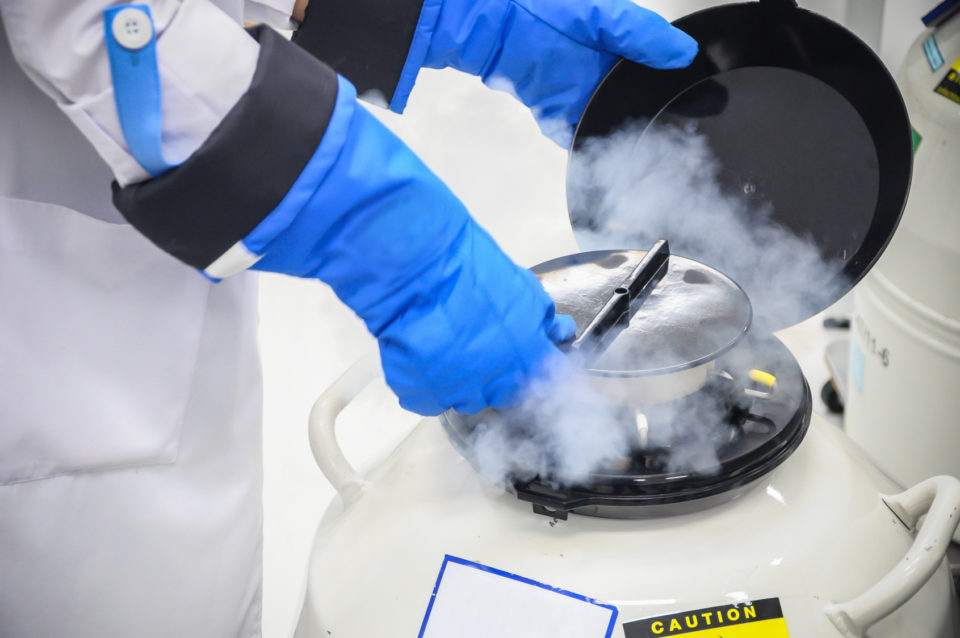Egg freezing and IVF (in vitro fertilization) are two popular methods for getting pregnant However, this does not always mean that fertility treatments are simple. While these treatments have helped many women conceive, they may be emotionally, financially, and time-intensive.
If you’re thinking about IVF egg freezing, but aren’t sure what to expect, this article will walk you through the basics and tips on how to prepare yourself.
What Is Egg Freezing?
Egg freezing procedures, sometimes called mature oocyte cryopreservation, are a technique for preserving a woman’s capability to conceive at a later time.
Unfertilized eggs retrieved from the ovaries are frozen and kept for eventual use. A frozen egg could be thawed in a lab, put together with sperm, and placed in the uterus (in vitro fertilization).
An expert will guide you through how IVF egg freezing works, the risks involved, and if this fertility preservation treatment is good for you depending on your necessities and reproductive record.
Why Is It Done?
Egg freezing may be an alternative if you aren’t prepared to conceive presently but wish to ensure that you could get pregnant in the future.
Egg freezing, different from embryo freezing, does not require sperm since they’re unfertilized before they get frozen. You’ll need fertility drugs to promote ovulation and create several eggs for retrieval, just like with embryo freezing.
Freezing eggs is best for you if:
You’re dealing with a medical problem or a scenario that might affect your fertility. Lupus and sickle cell anemia are examples of autoimmune illnesses.
You require therapy for cancer or a different disease that makes it difficult to conceive. Two medical procedures that may affect fertility are radiation and chemotherapy. If you store your eggs before treatment, you can still have biological kids later.
You’d want to preserve younger eggs for eventual fertilization. Freezing egg cells at a relatively young age may help in a more successful conception when the time comes.
How You Prepare for the Procedure
If you’re considering freezing your eggs, go to a fertility clinic that specializes in this procedure. If the cost of egg freezing concerns you, find out how much each component of the procedure costs, as well as the annual storage expenses.
Before starting the egg freezing procedure, you’ll most likely have a series of blood tests. Your doctor might check the amount of estradiol and follicle-stimulating hormones in the blood on day 3 of your period to assess the quantity and quality of your eggs. The outcomes can help you forecast how the ovaries might react to reproductive medications.
To provide a full picture of ovarian function, an ultrasound of the ovaries and other blood work might be performed.
Screening for infectious diseases. You’ll get tested for hepatitis C and B and HIV, among other infectious disorders.
What You Can Expect
Egg Retrieval
Egg freezing, retrieval, and ovarian stimulation are phases in the egg freezing process.
Ovarian Stimulation
Instead of a single egg that you produce every month, you will use synthetic hormones to encourage the ovaries to produce many eggs.
Egg Retrieval
Egg retrieval is normally conducted under anesthesia at a doctor’s clinic or office. Transvaginal ultrasound suction is a method of detecting follicles using an ultrasonography probe inserted into the vagina.
Through the vaginal canal, a needle is injected into a follicle. A suction device linked to the needle is utilized to retrieve the egg from the follicle. Research shows that the more eggs retrieved each cycle — up to fifteen — the better the opportunities for a healthy pregnancy.
Once egg retrieval is done, you might have cramping. You may feel heaviness or pressure for days since the ovaries are still enlarged.
Freezing
The unfertilized eggs are quickly frozen to subzero temperatures to keep them for later use. Unfertilized eggs are more challenging to freeze and result in a good pregnancy than fertilized eggs because of their nature (embryo).
Vitrification is the most common method for preserving eggs. Cryoprotectants (chemicals that prevent ice crystallization throughout the freezing process) are used in large amounts during rapid freezing.

